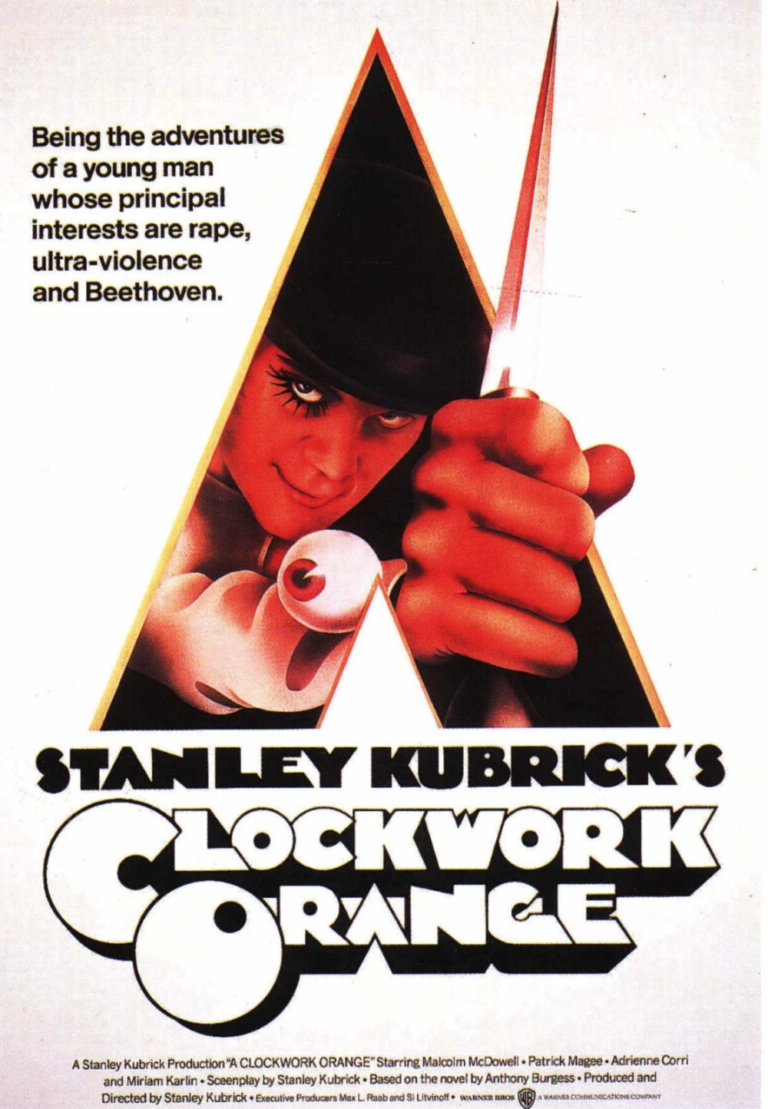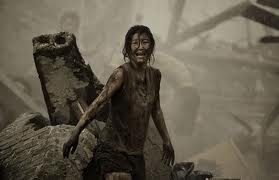Moon Bloodgood is playing Anne Glass in TNT’s new show “Falling Skies”. Moon is known best for her role as Lt. Blair Williams in the film “Terminator: Salvation”. Movie Mikes had a chance to attend a conference call with Moon to discuss the her new show “Falling Skies” and what we can expect from it.
Mike Gencarelli: What do you like most about your character Anne Glass on “Falling Skies”?
Moon Bloodgood: I really enjoy the fact that she is a doctor. She was a pediatrician. I think that she’s very admirable, that she doesn’t often talk about herself, extremely selfless, always calm and rational, always being fair and with reason. I think I admired her because I feel sometimes I’m not always that way and she was always selfless and always very maternal towards everyone.
MG: What stands out for you as the most difficult part working on the series?
MB: Sometimes the subject matter is heavy and there’s lot of depth and weight and you have to take yourself to that place where you’re supposed to be hungry, scared, you’ve lost your family and sometimes you want levity. I can find the subject matter to weigh on me at times when I was working and all I wanted to do was just go home and just put some comedy on and have a beer because I just needed some sort of change. I think no matter how much I can resist it, I gravitate towards these kinds of subject matters and I like the drama. That’s where I feel the most comfortable and probably that’s why that’s what I do the most.
Q: How did you get involved with the show?
A: I have vague memories of I think it but Spielberg and Michael Wright came up with it together and then kind of brought Robert Rodat into it, who is a real great writer and did the film “Saving Private Ryan”. By the time it found its way to me it was probably a year after it and Noah was already on board. I think other people had already been cast and I think originally I was supposed to be like an art dealer or some sort of artist. I wasn’t the primary focus in the first episode, it was about the Mason family and I was someone who was going to connect with Noah Wyle’s character, maybe a romantic twist was going to happen. So I saw just, a basic show that had really good people involved but I think it was something that Spielberg obviously initiated and then it kind of came into fruition.
Q: Aliens parking over cities has been kind of a common theme recently with shows like “District 9”, “Skyline”, “Battle: Los Angeles” and of course “V”. In your opinion what do you think separates this series from the other recent alien invasion franchises?
A: I mean we’re all kind of dealing with the same subject matter, I think what’s going to be different is certainly our approach. The science fiction aspect of it is going to vary but if you like the story, the human story behind it, you will want to follow the characters and that’s what’s going to bring you to it. We’re much more drama and more of a human element than like a “District 9”, one of my favorite science fiction films, which I think is primarily has a more science fiction element than I think we have. I think we have the marriage of a good family story with the science fiction element.
Q: You have dealt with post apocalyptic before with “Terminator: Salvation”, you’re starting to carve a little niche in this genre, what’s the draw for you?
A: I think I’ve been drawn to science fiction because I’m a fan of science fiction. I think when you like something, I like to think you’re generally better at it and when you’re auditioning for something, maybe that resonates. But because I love it, I tend to want to do those kind of projects. You start to do them and that kind of becomes your thing which is not a bad thing because it’s still a genre I deeply appreciate.
Q: How was it getting work with with Noah Wyle and the rest of the cast?
A: Listen Noah’s a veteran, I play a doctor, trust me he gave me lots of pointers. I was so happy to receive his advice. He’s been around and he knows the industry. He is just such a diligent professional. I learned a lot from him and Will Patton. I think you learn something from everyone that you work with but he gave a different perspective. I thought he was really good at being our leader and – in the show and also off, as in a friend and a colleague.
Q: I was wondering what inspiration did you draw from, if any, coming into this?
A: Good question. I sometimes think it’s probably not good to use your own life circumstances because that can kind of get tiring, but I did. I kind of dove – not dove into it but I conjured up or — what’s the word I’m looking for — I looked into myself and my own pain and tried to use that as a cathartic thing when I was doing the role. I just also try to use my imagination of what it felt like to live in a world where suddenly I lost my family and to lose a child which I – you know, must be the most horrendous thing to ever go through is to lose a child. So I tried to use myself and my imagination. The journey is interesting because there’s a couple times when I breakdown; I breakdown emotionally about my family, and there’s another time when I am fighting to, you know, keep the alien alive with another doctor and I’m very stoic in that fight, and there’s a time when I’m more romantically involved with Noah. What was the most compelling part is when I had to actually pick up a gun at one point because I get hurt, I get attacked and I suddenly need to defend myself against other humans and that’s a position that Anne Glass never thought she would be in. And for her that’s when the world – the first biggest pain was her husband and her child and the next was just loosing that innocence against violence.
Q: So I’m wondering from your end how much did you know in advance as episodes were going on, and how much did you want to know?
A: Well with TV things are happening where you’re getting the scripts and you don’t know – you don’t have a long time to digest the changes and changes happen. You know, when you’re working on a movie you get the script, you know the whole outline before you start. So that part’s a little disconcerting at times but also really keeps you on your game and on point. So I would prefer to know sometimes but maybe it’s good that we find out; we don’t try to put too much of ourselves in it, we just do what we’re told to do, you know? Like we’re there to fulfill a story and not try to like, you know, like wet the screen with our interpretation of it.
Q: There’s a little something for everybody in this show, it’s not exactly a sci-fi film, it’s a drama, it’s a love story, it’s a family show. What was some of the things that really, really attracted you to it?
A: Doing something that is not just one dimensional. It’s science fiction but it’s human tragedy. It’s different diverse characters interwoven together and trying it kind of find their humanity and live any kind of normalcy and readjust to the new world that’s changed completely from the world that they know. I was also drawn to playing a doctor and it’s something I’d never done. I had played a nurse but I had to have to have a gun on my leg and be running around and doing stunts, though which I loved to death. I wanted to do something more cerebral and that I got to be a little softer and I thought that was a more fun place for me to be in this in this time in my life.
Q: What kind of things does the shoot do to make sure that the family drama doesn’t get overshadowed by the aliens and the special effects?
A: I think primarily when Rob Rodat wrote this, he’s from Boston, it was always a human drama and not a simple story about a family. It was supposed to be the paramount story and then the science fiction kind of secondary. The reason I don’t think we get overshadowed by the science fiction is because it sort of goes on and off. Where we go family story, and that stay. The second episode will be filled with science fiction, then we take a break and we get away from all that — the guns and action and go back to a love of the dialogue and the interpersonal relationships. I really truly believe we did succeed in always keeping the family structure and the human element of it in the forefront and the science fiction secondary because I do think sometimes science fiction, if you don’t have a good story behind it, it can become one dimensional.
Q: I think with this premise there are going to be a lot of expectations. How are you and the rest of the cast and the crew dealing with the pressure?
A: I’m wondering why I don’t feel more pressure [laughing]. I don’t know if I’m just kind of disconnected because I need normalcy in my life. I don’t feel any pressure, I don’t. I feel like at this point like, let the chips fall where they fall. I’ve done the work and I feel confident in the content. I don’t think we’re trying to make a revolutionary like novel stance on aliens, we’re just trying to make a simple family show about human survival and that takes precedent and this science fiction element I think is secondary. It’s not just an action show. Do you want to go on this journey with these people?, do you understand what they’re going through? I can’t say I’m not going to be disappointed if it’s not well received. I’m also not a veteran but I think I’ve learned to try to not get caught up in the expectation game because that can be so easy to do when you’re an actor and I think it’s not healthy. So I’m trying to stay very adult-like about it.



